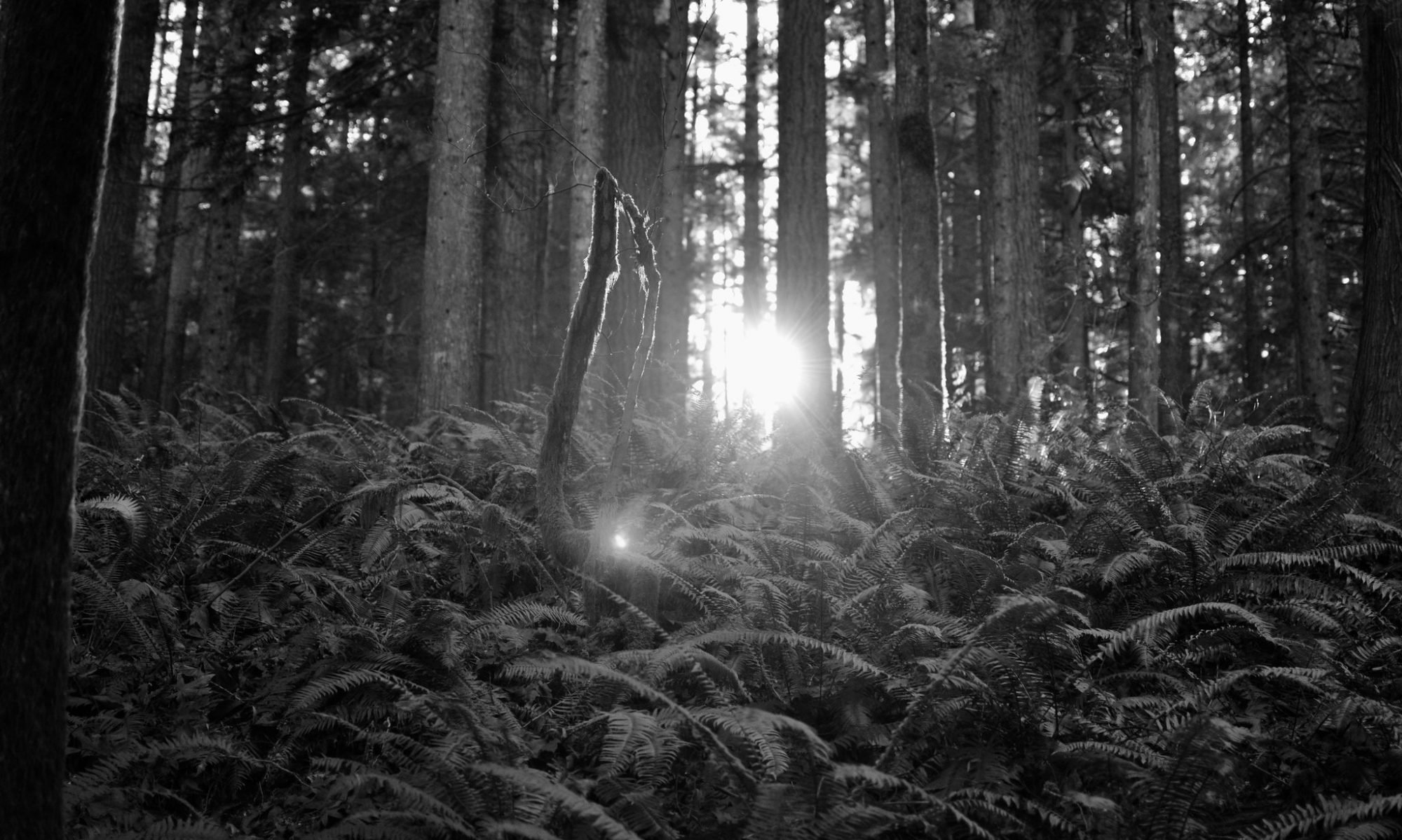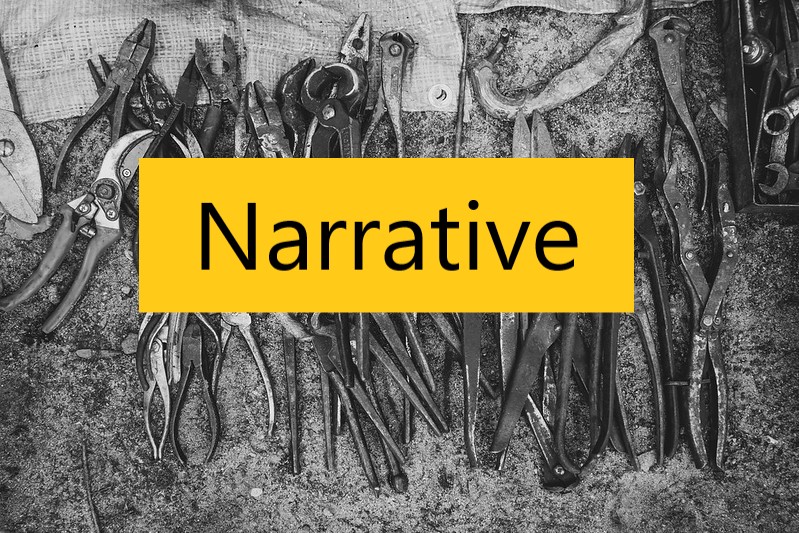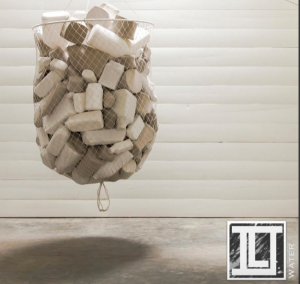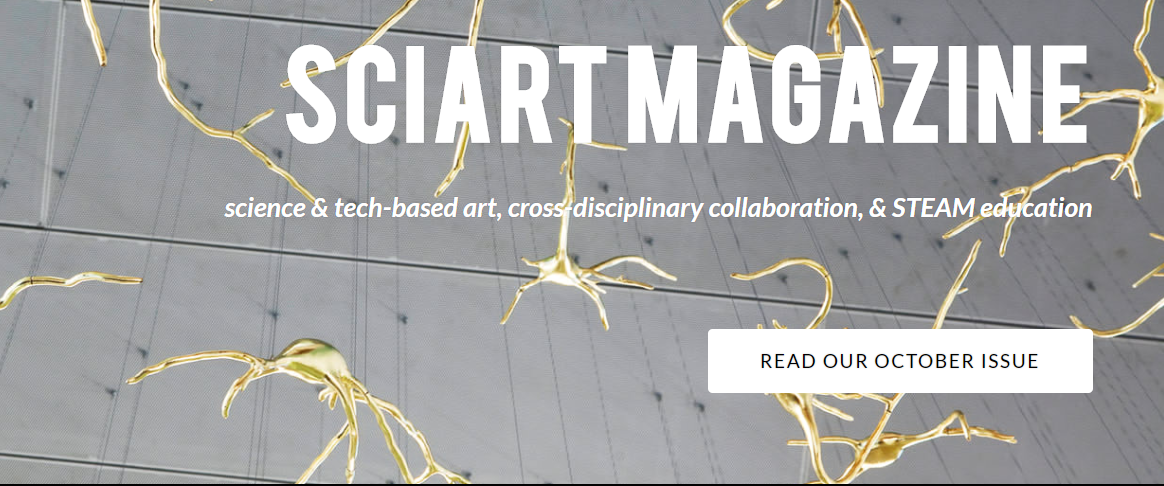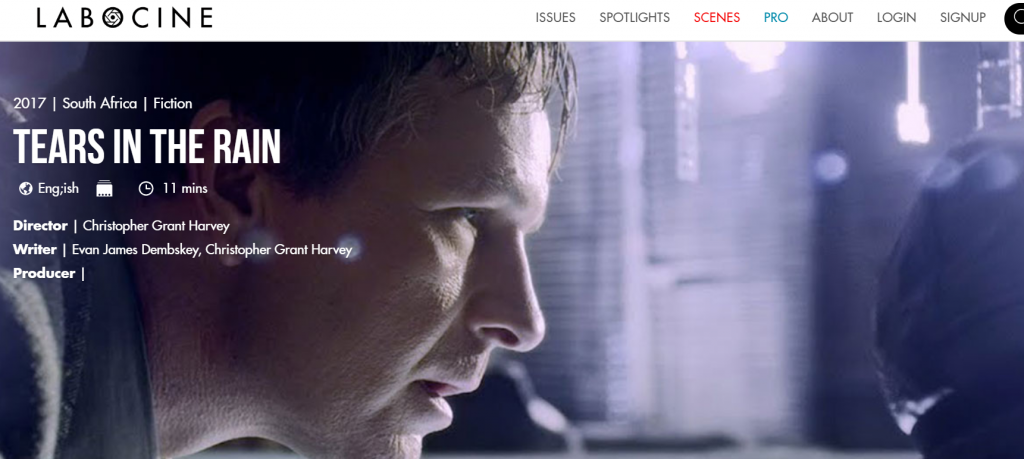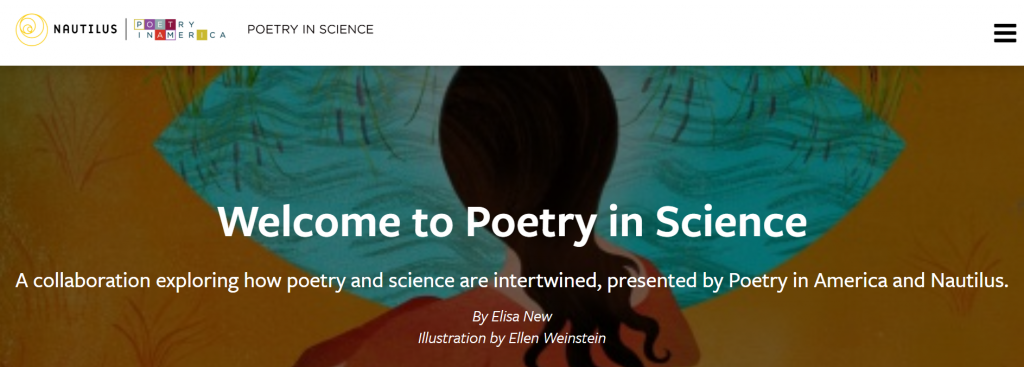In this new series, I’ll be deconstructing a poem that intersects with science in some substantial way, learning how the poem ticks, what it’s accomplishing, what science is baked into the piece, and what we can learn from it. To start, I’ll be exploring a poem called “Thrush Music.”
Thrush Music
We have twenty-five spots left
for students who wish to disappear.
Twenty-five empty seats.
Twenty-five air conditioners
breathing through empty bedrooms. Twenty-five
bags of oxygen
lifting in twenty-five students
who wish
to disappear past
the exosphere.
Meals will be simple. Passage
will be long
and quiet.
Abubakri, Shackleton, Earhart
at least had waves. A tern,
thunderheads.
That’s the problem with space,
that is, one drip
of blue
in a whole ocean
holds something to listen to.
Radio communication will cease
upon landing.
When the anvil drops
at the squeezing of an airlock out,
out.
More than words, motion.
The noise of naked thighs
sliding skin against skin
in a forest. Somewhere
to get beyond dust. To see heat
bound through foliage,
darken a face not contained
in a fishbowl.
You may explore the planet,
make shelter, tend
to the greenhouse.
But please do not interfere
with the rovers.
2.
Some among us claim this dirt
was our first home, that our gods planned
for colder life but an asteroid knocked
us to a hotter rock
while still in our tiny forms.
That this is a return trip home,
that we were meant to breathe
carbon, to take form from sand and wind,
to celebrate in radiation.
Now home has filled with shivering drifters,
and the windows are all knocked out.
Our parents are long dead,
with stones out front to mark their graves.
3.
*
Sometimes we pretend the tracks we see are not our own. The moons
are oblong eggs digging into the sky.
*
Yesterday we heard Curiosity IX humming “Happy Birthday”
to itself.
Some nights we sit on our cubes, laugh
and make owl noises into the dark. Become quiet again.
*
There is nothing left to see, so we pretend. Make totem poles
from basalt, give them stray LEDs for eyes. Build temples
for the sound they make against the wind. Our children are orange, drink
to volcanoes. Are happy with us for leaving them here.
In 1983, my grandfather bought an airplane from Neil Armstrong. This was not a coincidence—the two men ran in similar circles in upper crust Cincinnati, golfing together and dining at the Camargo Country Club. My grandfather was always proud of this relationship. He was, after all, a space buff, the kind of person that built a telescope by hand—even grinding his own mirror– just so he could get a better view of Jupiter. Despite this, with one exception he never brought up the Apollo missions with Neil. Neil was, always, a very private person. Especially when it came to his astronauting days.
That one exception, however, happened on that day in 1983 when my Grandfather first got his keys to his Bonanza single-prop (I’m not actually sure if you use a key to start a plane). Neil took him into the air for a test-ride and the two cruised back and forth across the Ohio-Kentucky line, chatting idly about politics, family, and the Bengals, but mostly just enjoying the company and the view.
While they were in the sky, a rogue low-pressure front moved in from the west, and large cumulonimbus clouds built and burst above the airport. With the rain beginning to roll in, my Grandfather radioed the control tower, asking about clearance for landing. The man on the other end responded by asking something along the lines of: “Mr. Cooper, have you passed your Level 3 flight protocols? You need those protocols passed to land the plane in these wet conditions.”
He did not have the certification, though in those days it was rare that anyone kept up with that sort of thing. My grandfather was confident he could land the craft safely, and even more confident knowing who sat beside him.
Feeling punchy, he radioed back to the control tower and responded, “No, but my copilot did put the lunar lander on the moon.”
There was a long silence and my Grandfather, a bit embarrassed to have brought it up, tried to steal a glance at Neil, who was looking out the window, unresponsive. A few moments later the tower responded curtly, “Um, yes ah, Mr. Cooper, Mr. Armstrong, you are clear to land.”
Neil turned his head slightly to glance at my Grandfather, a hint of a wry smile playing across his face.
—
I am fascinated by the idea of spaceflight, thanks in large part to stories like these from my Grandfather. I always wanted to know more about Neil, about watching the moon landing and the thrill of the space race. But something that always struck me was how my Grandfather described Neil Armstrong. Quiet, reluctant, bleakly honest. Hard to hold a conversation with for long before his mind seemed to drift somewhere else. This image of the first man to step foot on the moon, in many ways, informed how I imagine space travel to be, how astronauts in real life might behave and be affected by their experience. The Right Stuff notwithstanding, astronauts, it seemed to me, were at their core less pilot ace whiz kids and more wandering introverts with boundless curiosity that found an outlet in the sky.
Every time I try to write about space, it ends up in this introspective, melancholy place, and I think that comes from this early view of the effects I imagined space having on those who visited it. What can you tell someone about your experience who hasn’t, with their own eyes, seen everything they care about in the world rise as a blue dot while they stand on a barren rock?
This interpretation of “Thrush Music,” (a title chosen because the call of the thrush can only be heard when one is truly remote; the wood thrush is solely a deep woods bird) however, actually came later. The original inspiration for this poem, truly, came from an email in my inbox promoting a study abroad trip, advertising space for 20 students looking to “disappear,” a typo for some other word that I have never figured out but that, at the time, I instantly wrote down because I found it so delightful. Years later, the line found a home in a poem about space.
Generally speaking, the poem explores a future world where there are the beginnings of colonies on Mars for the particularly intrepid, or bored. I once heard Antarctica described as the place where people go who, if god gave the earth a good shake, would gather at the bottom of the planet because they didn’t have strings holding them down anywhere else. I assume the first people to choose to live on Mars might be of a similar breed to them, and to the original pioneer of new worlds, the window-watcher Neil Armstrong. The poem explores what it might be like to make such a separation—in physical space, in introspection– permanent.
There is a lot of science to be found in this poetic sequence, science that I think sustains the world I am building better than any fiction could. For me personally, science always adds a flavor to the poetry that I find centering.
First, I mention the dust, something I always assumed would be a relatively neutral aspect of living on a sandy planet prone to dust storms. But in fact, scientists tell us that the dust could be unbearable. Martian dust is a lot finer than earth dust. It hangs in the air like cigarette smoke, making the horizon look yellow and polluted. When I first heard this, I found it incredibly jarring, though I suppose it shouldn’t be; there’s no reason a space devoid of human impact should be “clean,” especially on another planet, but that’s part of the mythology of exploration and something neat to continue thinking about as we further expand the bounds of our influence, as a species.
At a few points in the poem I mention the rovers, particularly “Curiosity,” whose software—it is true—is programmed to produce a binary code once a year that reads “happy birthday.” I like imagining a future where these robots are old tech, still milling around without much purpose—much like the characters in the poem—humming and thinking to itself as it goes about its business.
In part II of the sequence, I explore one astronomical theory: that life actually began on Mars back when the red planet would have been far more hospitable to life as we know it than the earth, which spent its infancy as a molten, bubbling mess. The theory goes, as Mars aged and began to get too cold, earth took the mantle as the planet in the solar system more accommodating to life. Fortuitously, a massive asteroid crashed into Mars, sending pieces of the planet into space. Some of these planetary fragments landed on earth, and the rest is (prehistoric) history.
Throughout the rest of the piece I think about the new colonization of Mars as a sort of continuation of that connection between the blue and red planets; being left behind, cyclically— cells on Mars gradually freezing to death, leaving the bright future of their city in disarray, and now displaced people looking for a new start, only to find to melancholy and long-forgotten. The “stones out front” are the fossilized remains of these (theoretical) cells, which scientists have found some evidence for.
Using science to build the kind of world I want for my poems helps me ground myself in a reality that I can then tweak and modify. I find that having walls of facts and knowledge to push against gives the work a dynamic potential energy that better holds everything in place. Starting from a blank slate, I end up just piling things on top of one another, without a cohesive gravity to hold them together. It’s a cliché that “fact is stranger than fiction,” and it’s not true, really. But facts do inspire a different way of thinking, and that’s why I incorporate science into my creative writing.
